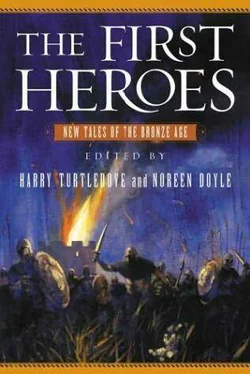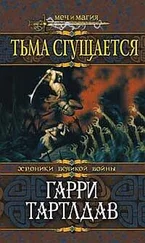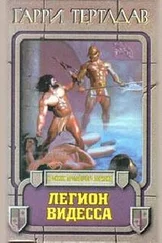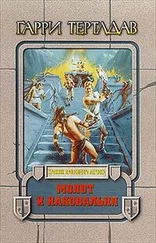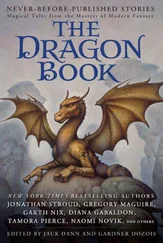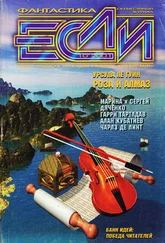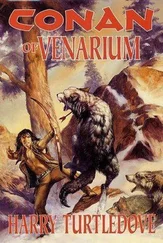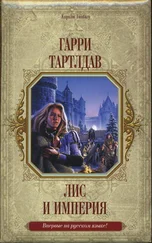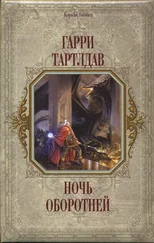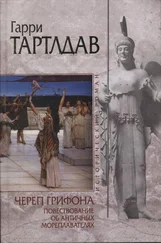Гарри Тертлдав - The First Heroes
Здесь есть возможность читать онлайн «Гарри Тертлдав - The First Heroes» весь текст электронной книги совершенно бесплатно (целиком полную версию без сокращений). В некоторых случаях можно слушать аудио, скачать через торрент в формате fb2 и присутствует краткое содержание. Жанр: Фантастика и фэнтези, на английском языке. Описание произведения, (предисловие) а так же отзывы посетителей доступны на портале библиотеки ЛибКат.
- Название:The First Heroes
- Автор:
- Жанр:
- Год:неизвестен
- ISBN:нет данных
- Рейтинг книги:3 / 5. Голосов: 1
-
Избранное:Добавить в избранное
- Отзывы:
-
Ваша оценка:
- 60
- 1
- 2
- 3
- 4
- 5
The First Heroes: краткое содержание, описание и аннотация
Предлагаем к чтению аннотацию, описание, краткое содержание или предисловие (зависит от того, что написал сам автор книги «The First Heroes»). Если вы не нашли необходимую информацию о книге — напишите в комментариях, мы постараемся отыскать её.
The First Heroes — читать онлайн бесплатно полную книгу (весь текст) целиком
Ниже представлен текст книги, разбитый по страницам. Система сохранения места последней прочитанной страницы, позволяет с удобством читать онлайн бесплатно книгу «The First Heroes», без необходимости каждый раз заново искать на чём Вы остановились. Поставьте закладку, и сможете в любой момент перейти на страницу, на которой закончили чтение.
Интервал:
Закладка:
"Great Dian," I said, "if it is your will that I am to be neither your priestess nor any man's true wife, then help me at least to bear the pain. Love for Aeneas sits in my heart like a stone, and does me no good; end it, Great Dian, I beg of you, take it away from me so that at least I will not care."
Thus I prayed, even while Aeneas was climbing up the path from the beach below—whether he intended to comfort me or to chastize me, or whether he feared that, like my mother, I might do myself an injury out of despair, I cannot say—and as I prayed, Great Dian reached out with dazzling light and blinded him for an instant so that he slipped and fell.
That is what Askanios, following after, saw. Not witchcraft, but the hand of the god, struck down Aeneas and sent him to his death.
She finishes speaking and lifts her head to stare at Watis. Torchlight gilds her face. The young chief and his retinue are watching the elderly seer, but none of them speak, not even Askanios.
"Do I lie?" Lawinia said. "I submit myself to the judgment of the god."
And the god comes to judge her. Watis feels the icy touch of his hands along her face and neck. She begins to tremble; she tosses her head back and pants for breath as the power takes her. Her head snaps forward, but its seems that she is seeing them all from a great height. The girl crouches at her feet, the men step back, jostling each other in fear. Her mouth opens at another's will, and another's voice speaks.
"She is mine. Will any mortal man harm her? She will serve me. Will any mortal man prevent her? She will speak for me. Will any mortal man silence her?"
Watis gasps for breath. The power slides from her like a wet dress, leaving her shivering. Her hands clasp each other like claws, then release. She is seeing them all from the height of her chair and nothing more. The girl sighs once in sharp relief. The blood has drained from Askanios's face. He crosses his arms over his chest and tucks his trembling hands into his armpits, perhaps to hide their involuntary motion from his men.
"Well, Teukrianos?" Watis says. "Man from Wilion, far sailing, Aeneas-son, will you challenge the god for this girl?" "Never!" He gulps for breath. "May she serve him well." He turns to his men. "We'll camp down on the sea coast. Let's go. We've troubled the holy one too much as it is."
To save their dignity they leave slowly, filing out of the cave with their heads held high. Watis waits until their footsteps die away, then stands and hobbles to the mouth of the cave. Lawinia follows. The men are striding down the path, heading for their horses tethered on the beach below.
"They're gone," Watis says. "Tell me the truth. The god never did say whether you lied or not."
"My story's true." Lawinia pauses, staring down at the floor. "All except the very end. In my anger, I wished Aeneas dead. That's what I prayed for. And the god gave it to me."
"I thought so. Very well."
"You won't—"
"Won't what? Berate you? Condemn you?"
"Just that."
For an answer Watis says merely, "The cave gets cold and damp once the sun sets. I need to show you your first task."
"Will the god come to me?" Lawinia looks up, her eyes wide.
"No." Watis pauses for a smile. "First you need to learn how to scrub the shrine's floor."
In the western hemisphere, the Bronze Age was confined to the Andes, including the Inka people and their neighbors. Spanish chronicles preserve the complexity of their oral history, including the troubled succession of Pachakuteq (who reigned C.A.D. 1438—1471). The colonial writers also described the quirks of their subjects' personal lives in devastating detail. Although considered one of the greatest indigenous rulers of the Americas, Pachakuteq and his family did not escape their scrutiny, nor that of Karen Jordan Allen.
Orqo Afloat on the Wllkamayu
Karen Jordan Allen
The icy waters of the Willkamayu closed over Orqo as he fell. He still gagged from the blow to his throat, and when the freezing current flooded his mouth and nostrils, he thought himself dead. Then rage filled him, pouring a last, desperate strength into his arms and legs. He clutched his heavy mace and lunged for the surface. Damn you, Kusi, he thought. You haven't won. Not yet.
He reached the air, coughing desperately and shuddering as the frigid water chafed his skin. Then he heard a splash beside him, and a thunk behind. Stones dropped into the river all around him. He gulped as much air as he could and dove under the surface. A rock glanced off his back. He kicked and kicked until his lungs were ready to burst, then lifted his face just out of the water. He looked quickly over his shoulder, searching the high riverbank for the man who so enraged him, the half-brother who stood with his army between Orqo and the maskapaycha, the insignia of the Inka, Qosqo's rightful ruler.
He could see figures on the bank high above, silhouetted against the stone-gray sky, but he could not say which might be Kusi. Only one was unmistakable, the tall form of Roqa, their older brother. He had slung the stone that caught Orqo in the throat. Orqo raised and shook his mace. Let Roqa see that. Let him tell Kusi, Orqo is not defeated.
A handful of stones pelted the water between him and the watchers. He turned and kicked, swimming hard, for his defiance would come to nothing if he lingered, or let the river swallow him, or went ashore too soon. For a time his anger powered his body, and he swam as if he raced the fish. This is not right, he complained to himself as he churned through the water. J am the chosen heir. My father, the eighth Inka, Wiraqocha, named me to follow him. Why do the gods scorn the Inka's will and side with Kusi?
He paused once more to look back; he could no longer see the river-bank at Yukay, where he had fallen, nor was anyone in sight. For the moment, he could breathe. But how long would it take Kusi to follow and find him? He gazed up at the green, implacable mountains, the rocks that tumbled down their sides and spilled into the river. The gods knew every crevice and current. Was any place safe?
Orqo's feet hit rock. He put out a hand and caught himself on the suddenly shallow bottom, then stood. He cupped one shaking hand around his mouth, and with the other held his mace aloft. Its star-shaped bronze head glistened. "Speak to me!" he screamed to the mountains. "Tell me! What must I do?"
And he waited, breathless, in case the gods finally broke their silence. But the stillness swelled and grew until he felt himself sinking in a bottomless river of it. Orqo's shoulders sagged. He pulled off his heavy, sodden tunic, which made it hard to swim, then threw himself back into the freezing water wearing only his loincloth.
So. He fought alone, or nearly so. Kusi had most of Qosqo on his side, the generals, the pururawka-kuna—the warrior stones—and the gods. He, Orqo, had only himself, his mother, and an aged father whose grasp on power was slipping, and whose judgment had already proved disastrous.
Father, Father, we should have stayed in Qosqo and fought the Chankas, Orqo thought. We should have defended the city with Kusi. No matter how fierce the enemy. Did you think the people would love us better for deserting them to save ourselves? Did you truly believe they would accept your peace treaty at the cost of their freedom?
No, Orqo mused bitterly, we should have fought. And if Kusi had died—heroically in battle, of course—then there would have been no question about who would succeed Inka Wiraqocha as ruler of Qosqo.
Damn you, Kusi! Orqo thought again. And then, Damn you, too, Father. Damn you, damn you.
The news from Qosqo had reached the fortress of Hakihawana in the morning, suddenly. "Kusi is coming! With his army!" The messenger skidded into the Inka Wiraqocha's private courtyard, pulled off his sandals, and bowed hastily.
Читать дальшеИнтервал:
Закладка:
Похожие книги на «The First Heroes»
Представляем Вашему вниманию похожие книги на «The First Heroes» списком для выбора. Мы отобрали схожую по названию и смыслу литературу в надежде предоставить читателям больше вариантов отыскать новые, интересные, ещё непрочитанные произведения.
Обсуждение, отзывы о книге «The First Heroes» и просто собственные мнения читателей. Оставьте ваши комментарии, напишите, что Вы думаете о произведении, его смысле или главных героях. Укажите что конкретно понравилось, а что нет, и почему Вы так считаете.
